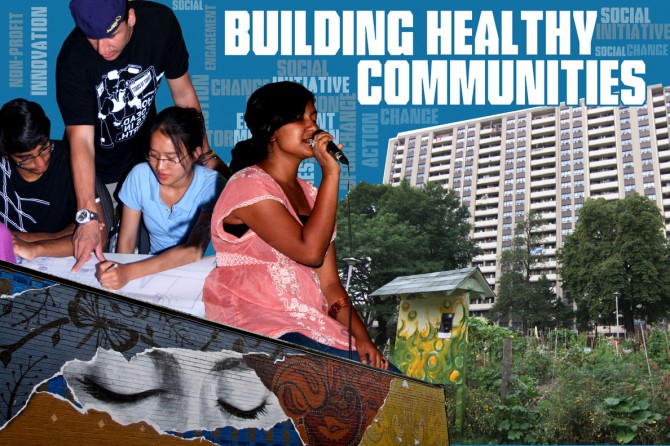L’insertion sociale des personnes handicapées au Québec : comment l’État vient-il soutenir le tiers secteur et les familles ?
Résumé
Cet article présente les résultats d’une recherche québécoise sur le rôle de l’État et du tiers secteur dans l’évolution de la politique concernant les populations ayant une déficience intellectuelle et qui s’est déroulée de l’été 2007 à l’été 2009. La recherche porte sur deux champs d’action : les initiatives favorisant l’emploi des personnes (plutôt que leur seul soutien financier) et la vie en logement (plutôt que le placement en maison d’hébergement). Ses objectifs consistent d’une part à documenter de manière systématique les initiatives mises en place par des organismes communautaires, des associations de parents, ou des établissements publics, à travers l’ensemble des régions du Québec, et, d’autre part, à faire ressortir les mécanismes interorganisationnels existant entre acteurs du tiers secteur et établissements publics. La recherche vise aussi à nourrir la réflexion concernant la construction de politiques sociales et l’évaluation de celles-ci. This article presents the findings of a study carried out across Québec between 2007 and 2009 on the role of the State and the nonprofit sector in the evolution of policies in the domain of intellectual disability. The research deals with two fields of activity in social participation: initiatives that encourage employment (as opposed to supported income) and specialized housing initiaves (in contrast to placement in homes or public institutions). The resarch goals for the study are twofold: to survey on a systematic basis throughout Québec the initiatives set out by community organizations, family associations, or the public sector; and, to single out the interorganisational mechanisms put forward by the public and the third sector. The study also aims to stimulate reflection on the renewal of social policies and their evaluation.Téléchargements
Publié-e
Comment citer
Numéro
Rubrique
Licence
1-The author guarantees that the manuscript is an original work not published elsewhere in print or electronically in whole or in part, except in abstract form, that the author has the full power to make this contribution, and that the manuscript contains no matter libelous or otherwise unlawful or which invades the right of privacy or which infringes any proprietary right.
2-The author guarantees that the manuscript has not been previously published in print or electronically and that if the manuscript contains any tables, figures or images fully reproduced or closely adapted from previously published material, the author must obtain the necessary permission from the author/publisher holding the original copyright prior to publication in CRSP. The author may be required to produce evidence of permission granted to CRSP’s editors.
3-As a condition of publication in CRSP, the author assigns all copyright to CRSP, including but not limited to the right to publish, republish, and otherwise distribute this manuscript in print, electronic, or other formats. As CRSP is a non-profit interdisciplinary scholarly journal, the author will receive no royalty or other monetary compensation for the assignment set forth in this agreement.
For the purpose of full disclosure, CRSP will not normally use the content provided by the author in a commercial venture, but for the purpose of disseminating the author’s content to as many readers as possible. For distribution, third parties engaging in commercial activities may be contracted to distribute the content globally, and such parties may make a profit out of the author’s content in their normal course of business. CRSP will not pay the author or reimburse the author in any form based on such commercial activities because the conduct of such commercial activities is outside the control of CRSP.
Any future reference to or use of this published material by the authors must acknowledge CRSP as the original place of publication.
PERMISSION REQUEST/ARCHIVING
Permission is given to author(s) receiving funding via Tri-Council Agencies, the Canadian Institutes of Health Research (CIHR), the Natural Sciences and Engineering Research Council of Canada (NSERC) and the Social Sciences and Humanities Research Council (SSHRC), to make their publications freely available in an Open Access repository within the stated deadline by the Tri-Council Agencies (12 months following publication). Archiving of publication must be a manuscript copy bearing none of the CRSP headers, footers or any other distinguishing marks. No links to the article on the CRSP website is permitted.
Permission requests from third parties to reproduce articles in part or full in academic/educational publications can be directed to the managing editor of CRSP, and will not be unreasonably denied.

